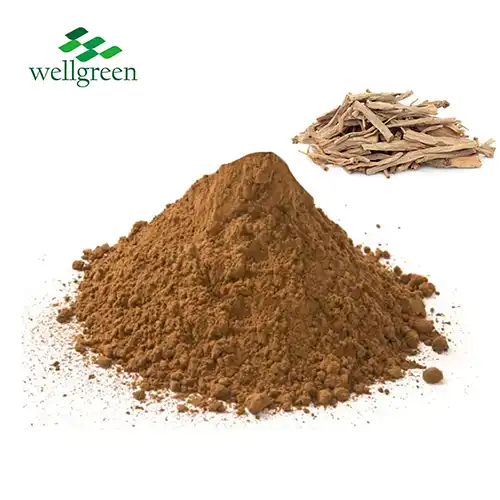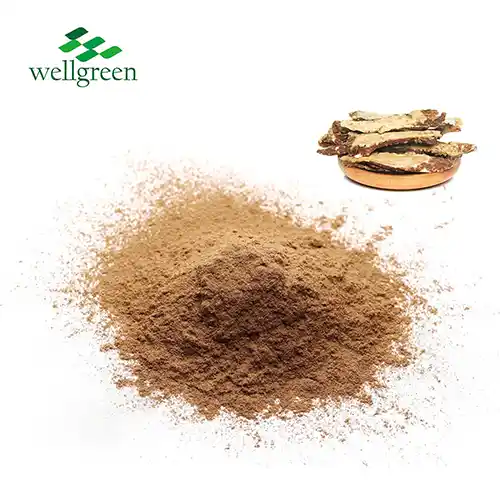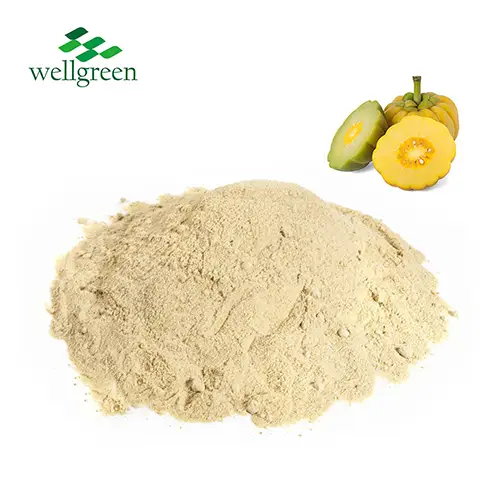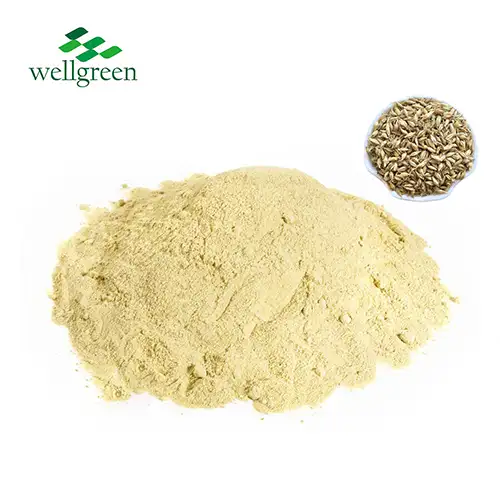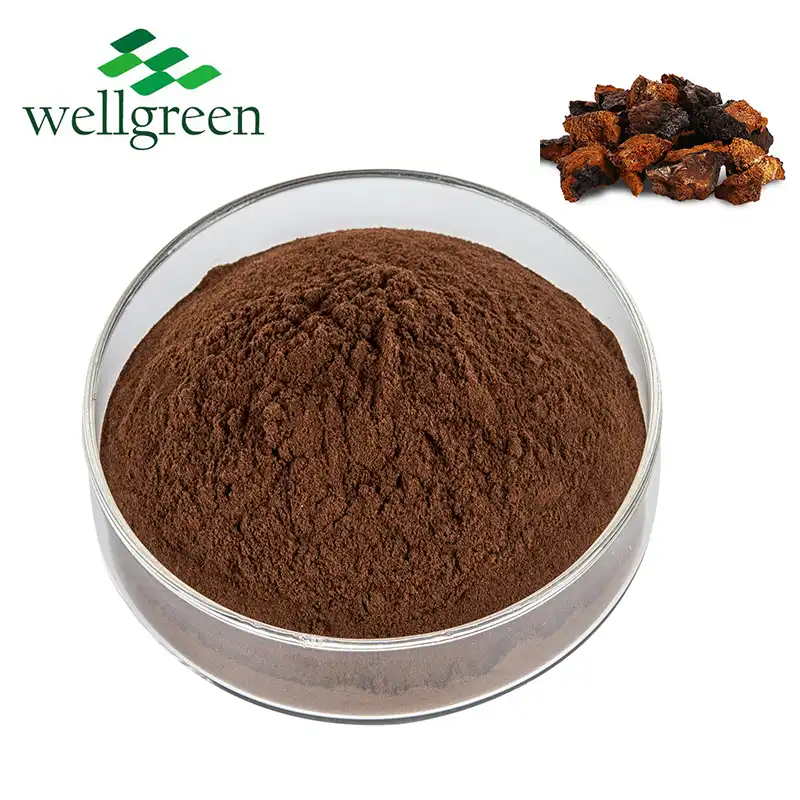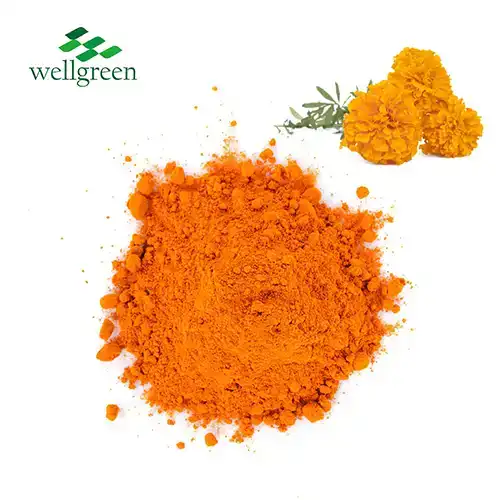What is Bilberry Extract Used For?
2025-09-19 14:24:41
Bilberry extract, derived from the fruit of the bilberry plant (Vaccinium myrtillus), is a potent natural supplement with a wide range of potential health benefits. This powerful extract is primarily used to support eye health, improve circulation, and provide antioxidant protection. Rich in anthocyanins and other beneficial compounds, bilberry extract has gained popularity for its ability to enhance vision, particularly night vision, and protect against age-related eye conditions. Beyond ocular health, it's also utilized for its potential to improve cardiovascular health, reduce inflammation, and support cognitive function. As research continues to uncover its diverse applications, bilberry extract is becoming an increasingly valued supplement in both traditional and modern wellness practices.
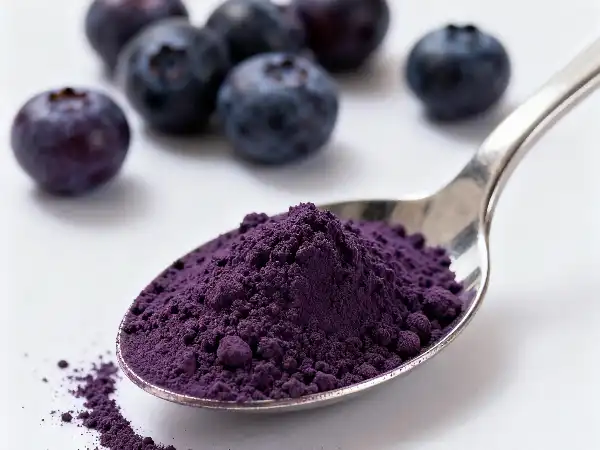
Traditional Uses of Bilberry Extract
Historical Medicinal Applications
Bilberry has a long history of use in traditional medicine, dating back centuries. European folk healers prized the fruit for its astringent properties and its ability to treat various ailments. They commonly used bilberry to address digestive issues, including diarrhea and stomach discomfort. The leaves of the bilberry plant were often brewed into teas to help manage diabetes and urinary tract infections. This rich history of traditional use laid the foundation for modern scientific investigations into bilberry's potential health benefits.
Folklore and World War II Connection
One of the most intriguing stories surrounding bilberry extract relates to its purported use during World War II. Legend has it that Royal Air Force pilots consumed bilberry jam before night missions, believing it improved their night vision. While scientific evidence doesn't support this specific claim, it sparked interest in bilberry's potential effects on eye health. This folklore has contributed to bilberry extract's enduring popularity as a natural supplement for vision support.
Traditional Preparation Methods
Historically, bilberry was used in various forms. Fresh berries were consumed for their nutritional value and potential health benefits. Dried berries were used to make teas and decoctions. In some traditional practices, bilberry leaves were also utilized, often dried and steeped to create medicinal teas. Today, modern extraction techniques allow for the concentration of bilberry's beneficial compounds, particularly anthocyanins, into standardized extracts. These extracts, available as bilberry fruit extract powder or in capsule form, provide a convenient way to harness the traditional benefits of bilberry in a more potent and consistent form.
Modern Applications in Circulatory Health
Vascular Support and Blood Flow Enhancement
In contemporary health practices, bilberry extract is gaining recognition for its potential to support cardiovascular health. The anthocyanins in bilberry extract are believed to strengthen blood vessels and improve overall circulation. Research suggests that these compounds may help reduce the risk of atherosclerosis by preventing the oxidation of LDL cholesterol. Additionally, bilberry extract may promote the flexibility and integrity of blood vessel walls, potentially aiding in the management of conditions like varicose veins and hemorrhoids. Its ability to enhance microcirculation is particularly beneficial for individuals with poor peripheral circulation.
Blood Pressure Regulation
Emerging studies indicate that bilberry fruit extract powder may play a role in blood pressure regulation. The antioxidants in bilberry fruit extract powder are thought to help relax blood vessels, potentially leading to improved blood flow and reduced blood pressure. While more research is needed to fully understand this effect, preliminary findings are promising. Some health practitioners recommend bilberry fruit extract powder as part of a holistic approach to managing hypertension, alongside diet and lifestyle modifications. However, it's crucial for individuals with blood pressure concerns to consult with healthcare professionals before incorporating bilberry fruit extract powder into their regimen.
Antioxidant Protection for Cardiovascular Health
One of the most significant modern applications of bilberry extract is its use as a powerful antioxidant for cardiovascular protection. The high concentration of anthocyanins and other polyphenols in bilberry extract provides robust defense against oxidative stress, which is a key factor in heart disease and other cardiovascular issues. These antioxidants help neutralize free radicals, reducing inflammation and oxidative damage to blood vessels and heart tissue. Regular consumption of bilberry extract may contribute to long-term cardiovascular health by mitigating the effects of oxidative stress on the circulatory system.
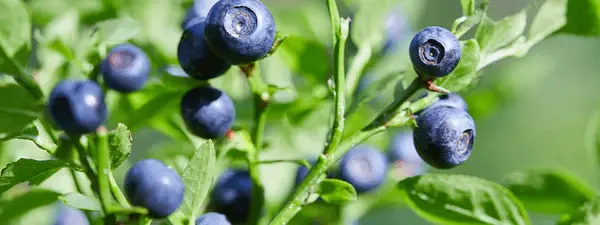
Evidence-Based Benefits for Eye Function
Retinal Health and Macular Degeneration Prevention
Scientific research has increasingly focused on bilberry extract's potential to support retinal health and potentially prevent age-related macular degeneration (AMD). The anthocyanins in bilberry are thought to strengthen the capillaries that supply blood to the retina, potentially improving oxygen and nutrient delivery to this crucial part of the eye. Some studies suggest that regular consumption of bilberry extract may help slow the progression of AMD, although more extensive clinical trials are needed to confirm these effects. The antioxidant properties of bilberry extract also play a role in protecting retinal cells from oxidative damage, which is a key factor in the development of AMD and other age-related eye conditions.
Glaucoma and Intraocular Pressure Management
Bilberry fruit extract powder has shown promise in the management of glaucoma, particularly in its potential to reduce intraocular pressure. Some research indicates that the flavonoids in bilberry may help improve the outflow of aqueous humor from the eye, thereby reducing pressure within the eye. While bilberry extract should not be considered a replacement for prescribed glaucoma treatments, some eye care professionals are exploring its use as a complementary therapy. The extract's ability to support overall eye health and improve blood flow to the optic nerve may provide additional benefits for individuals with glaucoma or those at risk of developing the condition.
Visual Acuity and Night Vision Enhancement
Despite the lack of conclusive evidence supporting bilberry's ability to dramatically improve night vision, research continues to explore its potential effects on visual acuity. Some studies suggest that bilberry extract may enhance the eye's ability to adapt to changes in light, potentially improving vision in low-light conditions. The anthocyanins in bilberry are believed to support the regeneration of rhodopsin, a light-sensitive pigment in the retina crucial for night vision. While more research is needed to fully understand these effects, many individuals report subjective improvements in visual clarity and reduced eye fatigue when taking bilberry extract regularly. This has led to its popularity among individuals who spend long hours looking at digital screens or those who frequently drive at night.
Conclusion
Bilberry extract stands out as a versatile and promising natural supplement with a wide array of potential health benefits. From its traditional uses in supporting digestive health to its modern applications in eye care and cardiovascular support, bilberry extract continues to intrigue both researchers and health enthusiasts. While more studies are needed to fully understand its mechanisms and optimal uses, the existing evidence suggests that bilberry extract may play a valuable role in maintaining overall health, particularly in areas of eye function and circulatory wellness. As with any supplement, it's important to consult with healthcare professionals before incorporating bilberry extract into your health regimen.
Contact Us
To learn more about our high-quality bilberry fruit extract powder and bilberry extract for sale, and how it can benefit your health or product line, please contact us at wgt@allwellcn.com. Our team of experts is ready to assist you with any questions and provide detailed information about our premium bilberry extract products.
References
1. Canter, P. H., & Ernst, E. (2004). Anthocyanosides of Vaccinium myrtillus (bilberry) for night vision—a systematic review of placebo-controlled trials. Survey of Ophthalmology, 49(1), 38-50.
2. Kolehmainen, M., et al. (2012). Bilberries reduce low-grade inflammation in individuals with features of metabolic syndrome. Molecular Nutrition & Food Research, 56(10), 1501-1510.
3. Pawlowska, E., Szczepanska, J., & Blasiak, J. (2019). Pro-oxidant and antioxidant mechanisms of action of an anthocyanin-rich extract from bilberry (Vaccinium myrtillus L.) in lens epithelial cells. Journal of Berry Research, 9(4), 599-615.
4. Zafra-Stone, S., et al. (2007). Berry anthocyanins as novel antioxidants in human health and disease prevention. Molecular Nutrition & Food Research, 51(6), 675-683.
5. Burdulis, D., et al. (2009). Comparative study of anthocyanin composition, antimicrobial and antioxidant activity in bilberry (Vaccinium myrtillus L.) and blueberry (Vaccinium corymbosum L.) fruits. Acta Poloniae Pharmaceutica, 66(4), 399-408.
6. Matsunaga, N., et al. (2010). Bilberry and its main constituents have neuroprotective effects against retinal neuronal damage in vitro and in vivo. Molecular Nutrition & Food Research, 54(4), 566-574.

